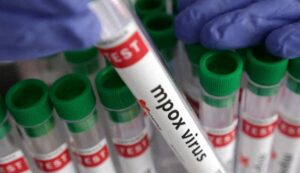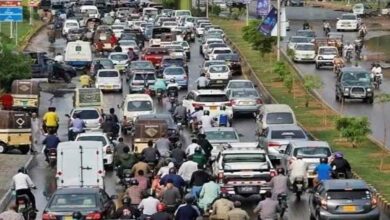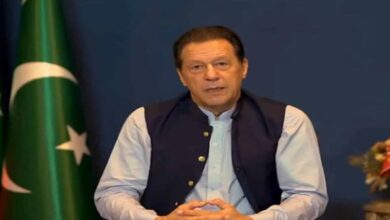Mpox: How African scientists are saving the world from pandemic infections
Mpox: They are critical on how to prevent further pandemics from occurring; however, they do so by working in conflict-ridden areas of the poorest countries that spend the least amount on health and have scant resources studying the deadliest diseases.

Read how eight physicians and scientists based in Africa measure and control new outbreaks on a continent that is home to some of the world’s most vicious pathogens, like yellow fever, HIV, Ebola, and Lassa. They do this using advanced genomic techniques, sophisticated data-aware systems, and, more importantly, classical fieldwork.
The latest infection that has jolted the whole world is a new type of the monkeypox virus that is currently prevalent within the central African nations. However, other infectious threats have developed at an even faster rate due to climate change, urbanization, deforestation, and high livestock farming. This is making it even more imperative for a growing population of local professionals to start recognizing these challenges and address them promptly.
Ibrahima Socé Fall is the worldwide program leader for neglected tropical diseases at the World Health Organization. He is a Senegalese infectious diseases epidemiologist. He has trained local medical teams for over thirty years, teaching them how to prevent and treat malaria as well as how to deal with potentially deadly emerging epidemics.
Fall said, “We have so many outbreaks and are building capacity to respond to that that the best epidemiologists are in Africa right now.” “We sent samples to Europe and the US in 2016 and 2017 to confirm Lassa fever and Ebola. We can now accomplish it in Africa.
According to him, public health labs in Kinshasa and Goma, Democratic Republic of the Congo, are capable of diagnosing Ebola patients and tracing the disease’s transmission networks via the analysis of genetic sequence data.
The establishment of infectious disease monitoring networks in Africa by Marietjie Venter, a virologist at the University of the Witwatersrand in Johannesburg, has helped increase local and worldwide awareness of reemerging respiratory and mosquito-transmitted viruses. The development of vaccinations and diagnostics across the continent has been given priority as a result.
Scientists can quickly diagnose illness by screening a single material for 30 or more pathogens using genomic-based approaches.
“Although many diseases that occur here don’t get the attention they need, mpox is interesting for the world right now,” she adds. “It’s critical that we both identify the problems locally and find local solutions.”
According to Venter, Africa is directly affected by the most serious health risks of the twenty-first century. The rise of vector-borne illnesses, such as those caused by the Zika, dengue, West Nile, Sindbis, Shuni, and Rift Valley fever viruses, is one way that global warming is being felt. “We are in the center of it, exactly. We essentially take advantage of the prospects here, despite the fact that our resources may be restricted.
At the University of the Witwatersrand, doctor and vaccine specialist Shabir Madhi is developing vaccines to stop the spread of microorganisms resistant to antibiotics.
An aspect of cultural imperialism, according to Madhi, is giving way to an appreciation of the distinct skill set that exists in Africa, particularly as donors and philanthropic organizations place more emphasis on assisting the continent’s scientists and encouraging them to lead research projects rather than just carry them out.
At the Zambia National Public Health Institute, Raymond Hamoonga is a veterinarian and epidemiologist who focuses on the interplay between environmental, plant, animal, and human factors that gives birth to novel microbiological dangers.
According to Hamoonga, Covid brought to light global inequalities as well as the resourcefulness of underfunded African medical teams who came up with creative solutions to provide treatment at home when confronted with a shortage of facilities to isolate coronavirus patients. “We learned beautiful lessons, even though our health systems aren’t as strong,” he remarks. “We were even innovative, if I may say so.”
Ten years ago, Hamoonga returned to his home Zambia after completing postgraduate studies in New Zealand. Although working in Africa may not be as profitable, he believes that the climate here is conducive to research.
Helen Rees is a physician, scientist, head of the WHO’s African immunization technical advisory committee, and executive director of Wits RHI at the University of the Witwatersrand. In order to lessen the region’s susceptibility to microbiological risks that go unnoticed while vaccines are hoarded in wealthy nations, she is advocating for increased access to essential vaccinations, including local manufacture in Africa.
Rees said, “The idea to start producing vaccines was enthusiastically welcomed after COVID, but because of the mumps outbreak, people are realizing that this is a serious issue. This will keep happening until we are able to get our own vaccinations.
Africa has to make a commitment to increasing its capacity for sustainable research. “Unless we’re serious about increasing those resources, we can’t load low-resource, low-income countries with ever higher expectations,” she adds.
Jacqueline Weyer is the director of the National Institute of Communicable Diseases in South Africa’s developing zoonotic and parasite section. She investigates viruses that circulate in animals and cause sickness when they infect people, such as Crimean-Congo hemorrhagic fever.
She claims that the SARS-CoV-2 pandemic brought attention to the significance of international cooperation. It also brought back money for studies on germs that may cause a pandemic and sparked interest in virology.
Weyer claims that “some of these really formidable diseases come from Africa.” “People are beginning to realize that in order to continue the way we’ve been going—where outside groups come in, do what they need to do, and then leave with no capacity left behind—we need to support African scientists and African research institutes.”
Researchers at the Africa Health Research Institute, Khadija Khan and Alex Sigal, are working to better understand the impact of understudied illnesses using immunologic investigations.
Khan said, “We looked at vaccine-induced hybrid immunity, and we did some amazing work with SARS-CoV-2.” That made clear how critical it is to have the capacity to react to these newly developing illnesses, particularly those that have the potential to become pandemics.
Additionally, the study forged relationships with partners in nations like Brazil, where the same mosquito vectors are found and provide comparable dangers for illnesses like chikungunya, which are affected by climate change.
“Barriers exist, no doubt about it. Hardcore African science, such as applied immunology, is not taken seriously by most people, according to Sigal. “We demonstrated with Covid that we are capable of achieving it at the greatest level.”





